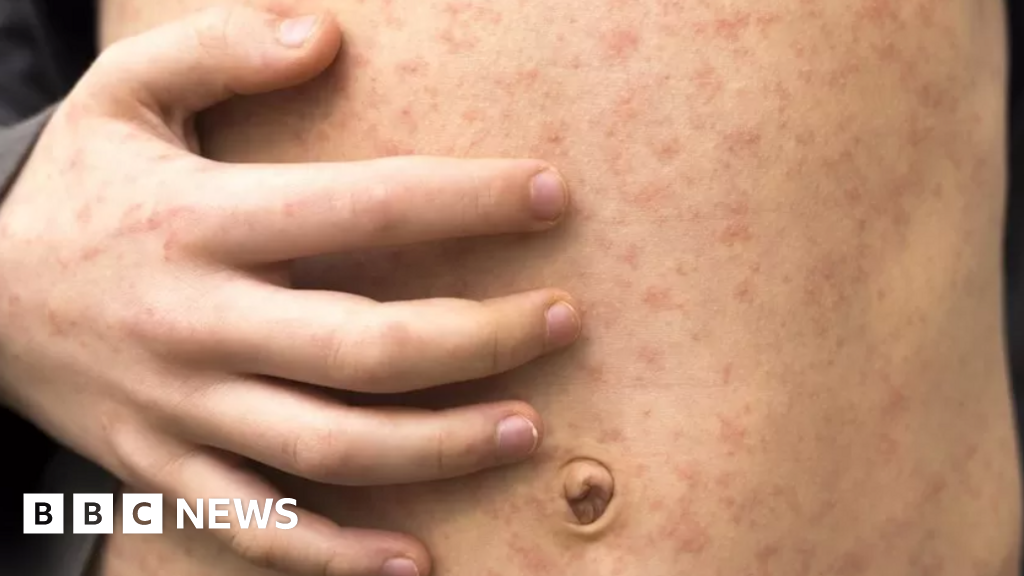Students are being given advice on how to spot the signs of measles and prevent it spreading
- Author, Lee Bottomley
- Role, BBC News, West Midlands
Students have been urged to be aware of the signs of measles following an outbreak of the disease.
There have been more than 200 confirmed cases in the West Midlands in recent months, with the majority in Birmingham, and a smaller number in Coventry.
Universities including Birmingham, Aston and Coventry said they were advising students on the symptoms of measles, and how to prevent it.
Measles is highly contagious, and is spread by coughs and sneezes.
Cases are likely to spread rapidly across more parts of the country unless people are vaccinated, the UK Health Security Agency (UKHSA) has said.
The rise in measles in the West Midlands has been linked to a low uptake of the Measles, Mumps and Rubella (MMR) vaccination.
The University of Birmingham said it worked closely with the UKHSA and had been providing guidance to staff and students about measles infection prevention and vaccination.
GPs who service the student population had been “actively following up patient records” to contact anyone without a record of a full vaccination, it added.
‘Communicable disease’
Coventry University said it was “aware of the rise in suspected measles cases in the West Midlands.”
It had posted information on staff and student portals advising them to consult official NHS guidance on checking for symptoms, and how to prevent it spreading.
As measles was a communicable disease, students who picked up an infection should report it to the university’s welfare team, it stated.
The university would then liaise with UKHSA to make sure any actions needed to prevent further spread were taken.
Aston University, Birmingham, said it “had issued guidance (about measles) in response to a request by the Chief Medical Officer.”
Measles normally clears up within seven to 10 days. However, complications can include pneumonia, meningitis, blindness and seizures.
Babies and young children, pregnant women and those with a weakened immune system are at increased risk.
The disease can be caught at any age, and can be fatal, but this is rare.
Follow BBC West Midlands on Facebook, X, and Instagram, Send your story ideas to: [email protected]

Sarah Carter is a health and wellness expert residing in the UK. With a background in healthcare, she offers evidence-based advice on fitness, nutrition, and mental well-being, promoting healthier living for readers.








